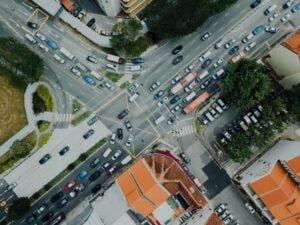This use case was initiated in collaboration with the Data Sharing Coalition, one of the founding partners of the CoE-DSC.
The private, public and civil sector want to collaborate in monitoring and combatting human trafficking. However, stakeholders face regulatory and trust barriers that limit their willingness and ability to share data. The emerging technology Multi-Party Computation can enable sharing insights without sharing the actual data. A generic design on how private, public and civil sector can share insights can improve the monitoring of human trafficking and help to combat the problem of human trafficking.
Protection of identities and data privacy is key in organising digital collaboration to combat human trafficking
Involved parties in monitoring human trafficking could strengthen their knowledge positions by sharing relevant data, but face multiple barriers:
- Legal complexity in sharing data due to various restrictions
- Risk that sharing information could endanger informants’ lives
- Risk that sharing data will break the trust relationships between NGOs and their clients
These data barriers result in partial and fragmented data that makes it difficult to piece together a robust understanding of the trafficking modus operandi in recruitment, transport and exploitation. A good example is interview information obtained by law enforcement agencies from victims of forced prostitution versus victim-centred stories obtained by NGOs from victims and sex workers. The goal for the participating NGOs, Roseman Labs, Sustainable Rescue Foundation, Pinsent Masons and other participants is to develop a use case based on MPC technology, with additional trust and interoperability features, as a proof of concept to overcome these data sharing barriers.
Multi Party Computation (MPC) technology could act as the basis to provide security and trust in digital collaboration
MPC technology has a specific characteristic that will enable use case stakeholders to share their data on human trafficking in the sex industry without revealing the source data. Instead of sharing the data, authorities allow a transparent algorithm to query their data sources for specific entries shared through innovative cryptography. This mitigates the risks because no personal data is exposed and legal rights are protected. Only the insights are shared, not the underlying data.
The proof of concept in this use case serves as a foundation for secure data exchange in monitoring human trafficking
As a proof of concept, this use case serves as the foundation for secure data exchanges between different parties monitoring human trafficking and is expected to evolve into other use cases. Through multiple workshops, the participants and the Data Sharing Coalition will create a generic use case design (including an interaction model and an overview of business, legal, operational, functional and technical requirements for sharing insights) that is scalable to multiple organisations involved in combatting human trafficking and multiple data types.
Findings of this use case
Do you want to learn more about the use case design, insights on the context of the use case and insights on how the use case can be implemented in a scalable way to other use cases with similar roles? Please download our report which includes our most important findings so far.
Do you want to know more about this use case? Or do you have an interesting idea to define and realise new cross-sectoral use cases of data sharing? Please send us an email at info@coe-dsc.nl.




